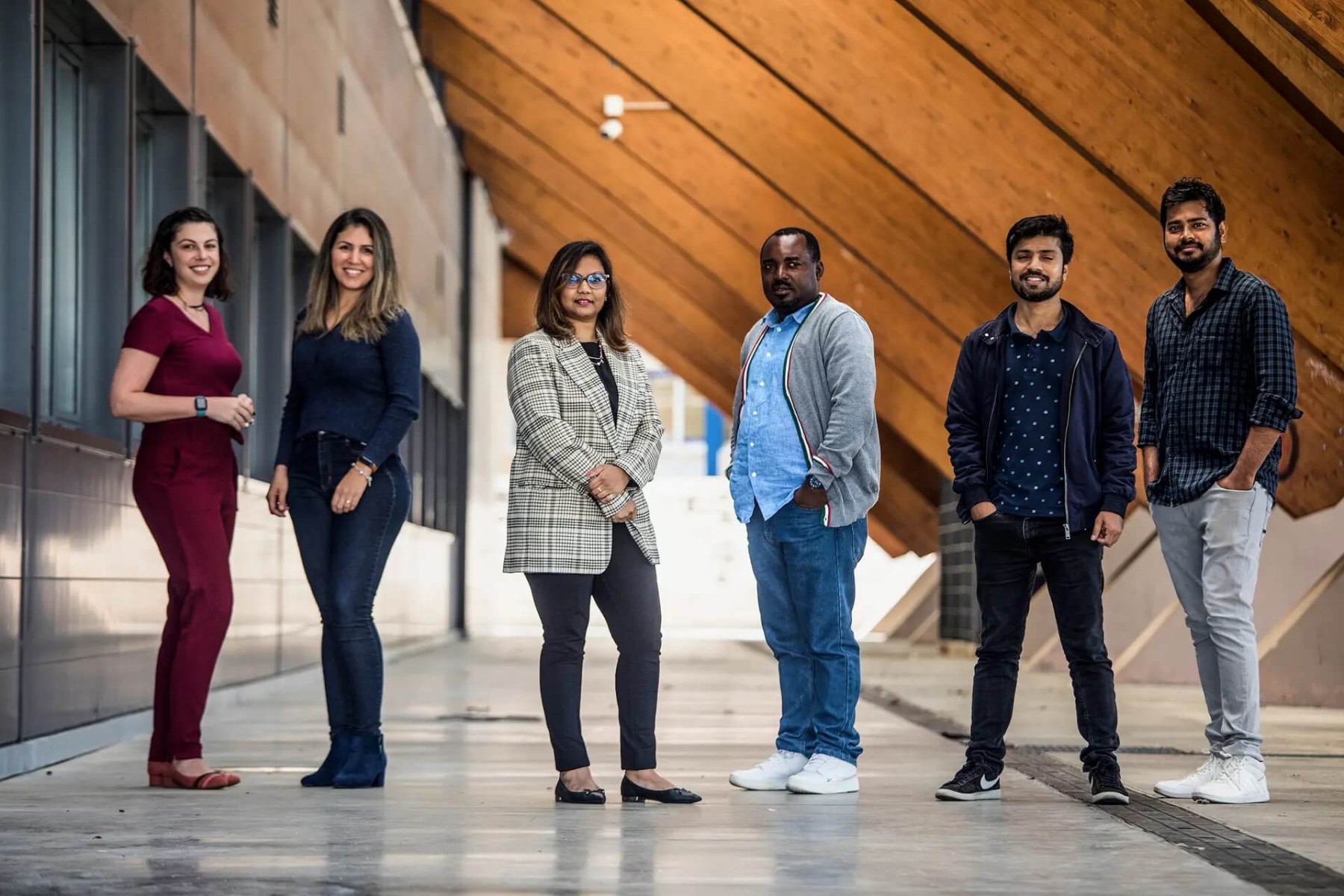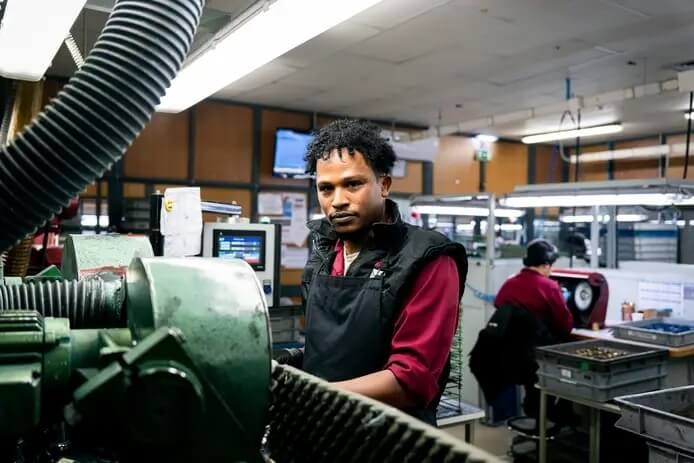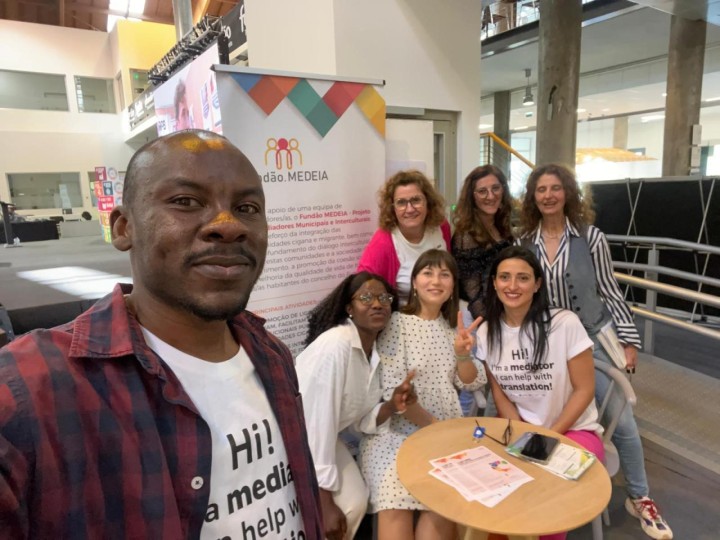Akimura arrived in Fundão three weeks ago. The Brazilian engineer, 47, was contacted via LinkedIn in November last year by the consultancy Capgemini Engineering. At the time, he lived in Jacareí, in the state of São Paulo, and worked at the aeronautics company Embraer. The multinational had seen his profile and was interested in hiring him for its offices in Portugal. "I had an interview, and it went well from the start. So, in June, I began working from Brazil. Originally, I was supposed to come in March, but because of the pandemic, my arrival got postponed." It is his first work experience abroad. He brought his wife and two daughters, aged 8 and 11, with him, and he has no shortage of compatriots at work or immigrants like him from the four corners of the world. More than 500 foreigners from around 50 non-EU countries, such as Nepal, Mauritius, Cameroon and South Africa, work in this consultancy alone. About 30% of the company's total employees are already in Portugal. It is far from being the only case. The country's shortage of highly qualified professionals, particularly in some sectors, is leading more companies to recruit abroad, especially outside the European Union (EU). Over the last five years, Portugal has managed to attract almost six thousand (5,994) highly qualified immigrants, 23 every week, with a profile identical to Atsunori's and stories that are nearly the same: higher education qualifications, the majority linked to the technological area, and, since 2019, hired in record time, with the right to priority treatment at consulates and express residence permit. According to data from the Ministry of Foreign Affairs (MNE), they arrive mainly from Brazil, India, China, and Iran.
"We have been in Portugal since 2013, and we realised there were not enough qualified professionals in the country to meet our needs. Recruiting from the European market was not an alternative because salaries are much higher. Therefore, we started exploring the possibility of recruiting in other countries," explains Maria da Luz Penedos, operations director at Capgemini Engineering Portugal.
However, the visa process was challenging and slow. "Portugal treated highly qualified professionals like any other immigrant, which didn't make sense. So, we held several work sessions with the government to create a simpler visa, which would be a priority. We ended up being promoters of the program", she reveals. The Tech Visa program started at the beginning of 2019 to facilitate the recruitment of specialised professionals outside the EU. Companies need to obtain certification from IAPMEI, and only then do they have access to this green route for international hiring, which grants immigrants a visa and residence permit in around two months, simplifying procedures at consular posts and waiving appointments in person and the obligation to present a contract to the Foreigners and Borders Service (SEF).
Initially created exclusively for technology companies, it was extended to all sectors four months after its launch. However, it continues to be primarily used by the industry from which it derives its name. The immediate impact of this extension was evident in consular statistics: in 2019, requests for residence visas for highly qualified professionals in teaching or cultural activities — which include Tech Visas — surged by 66%, from 830 to 1,377. This year alone, more than 300 companies obtained certification to hire professionals outside the European Union, including Farfetch, Talkdesk, OutSystems, and Feedzai, the four Portuguese unicorns (technology-based companies valued at over 1 billion dollars).
To qualify for the Tech Visa program, companies must have an activity aimed at the external market, a favourable net position, no tax or social security debts, or due salaries. Immigrants being hired must hold a degree or have completed a level 5 professional technical course with at least five years of experience in specialised roles. Additionally, they must have an employment contract lasting at least 12 months and a salary above €1097 per month.
Despite the boost the Tech Visa provided to the influx of highly qualified immigrants to Portugal, the numbers still fall far short of the country's needs, as the demographer Maria João Valente Rosa emphasised. She regrets that the program has very little visibility, especially compared to golden visas. The disparity in media coverage and investment between the two types of visas can be seen in the number of entries. Since 2016, 7,087 residence permits have been granted to immigrants based on their financial capacity, while only 5,994 have been issued based on their qualifications.



